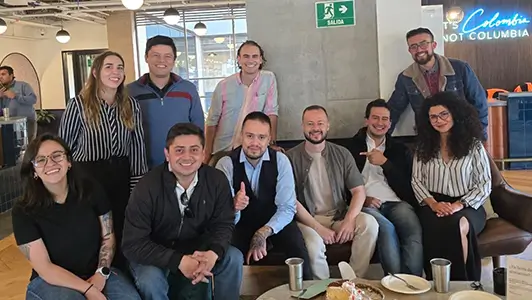For decades the most popular recruitment slogan was “people are our greatest asset.” Seemingly every company was saying it. That was great news for job seekers, because obviously, if a company said it, it had to be true. However, pithy phrases often lack substance and are so frequently used and vague that they easily become background noise.
The latest buzzword seems to be “human-centric,” and determining what that means and identifying companies that genuinely embody this principle has proven equally challenging. Companies have jumped on the human-centric bandwagon and claim to have the best culture out there.
The power of a strong company culture
When organizations have a strong company culture it leads to high employee engagement and retention, increased productivity, and more. On the other hand, company culture can face various threats like economic downturns, changes in leadership, and even rapid growth or expansion, which can lead to a dilution of the existing culture and the challenge of bringing together two disparate cultures.
So in a crowd of companies all promising a strong culture, how do you set yourself apart to candidates, clients, and customers? This is especially important if your company genuinely lives its values. How can you effectively communicate your authenticity and stand out from the crowd?
An exercise to bring your company culture to life
The strongest culture is one that is created and nurtured organically by your people. If you have one of those, it may feel like you can never quite find the words to describe it. At Pariveda, we felt this way, too. We truly believe we have a special culture, but for the first decade and a half of our history, we didn’t have the words to articulate it quite right. Our culture wasn’t something that was defined and mandated by leadership; it was created and nurtured organically by our people. Unless you experienced it, it was hard to understand.
Adapted from an approach created by David Friedman and described in “Culture by Design,” we developed our five Findamentals. (That’s not a typo. Employees here are known as “Fins,” and we’re maybe a little too fond of changing words to include “Fin.”)
Our Findamentals help us articulate how to show up as our best selves for each other, our clients, and our community in both prosperity and adversity. These tenets create a shared understanding of our cultural norms across our entire organization and the marketplace.
Curious about the Findamentals that drive our unique culture at Pariveda?
As you set out to create your own list of behaviors, consider surveys, interviews, and focus groups as different ways to connect with employees across all departments, seniority, and geographies. During your time with your employees, ask questions like:
- Can you share a story about a time when you thought “I am so proud to work here?”
- When you think about our culture, what words come to mind?
- When you think about how you should ‘show up’ for yourself, your team, and your clients, what behaviors come to mind?
You will likely hear a lot of different words to describe your culture. At Pariveda, we heard words like curiosity, transparency, empowering, supportive, collaborative, growth-minded, respectful, courageous, and trustworthy. And with each focus group and interview, we heard story after story about how our employees saw these being lived out every day. These discussions will help you identify what is truly essential to your culture. Leveraging the identified themes from our conversations, we created Pariveda’s Findamentals.
Ready to more effectively understand and articulate your company culture for an acquisition, new hire training, or even interviewing?
Leveraging culture across the employee Lifecycle
With a defined company culture, you can integrate it throughout the life cycle of each employee. We have seen this gain traction across these areas and think it could benefit your organization as well.
The recruitment process
Not only does a well-articulated company culture serve as a touchstone for your employees, it also provides your candidates with insight into what they will experience when working at your company. There’s a lot of noise in the channel, so to clearly articulate your company culture is a true differentiator for a candidate who is looking for value alignment.
Interviewing
As your candidates move through the interview process, they can lean on those words on paper and test them against what they are hearing throughout their interview process to really determine if your people are walking the walk or just talking the talk.
Onboarding
Start off on the right foot with your newest employees by incorporating your cultural norms into your onboarding process. You can do this by inviting tenured peers to share their career stories or by developing an engaging culture onboarding session. At Pariveda, we’ve seen it reinforce what they learned in the recruitment and interview process, establishing trust early.
Acquisitions
When organizations come together with their own distinct cultures and values, having a defined list of behaviors creates shared understanding through a written interpretation that also helps all groups identify similarities between cultures, lessening the friction that acquisitions can create.
The outcomes of a defined company culture
In a world where buzzwords and vague promises abound, defining your company culture emerges as the key to not only surviving but thriving. It is the foundation of employee engagement, talent acquisition, and lasting success, even as you navigate challenges like acquisitions, leadership changes, and external forces you can’t control. By embracing the journey of culture definition, integration, and authenticity, you can truly differentiate your organization.
















